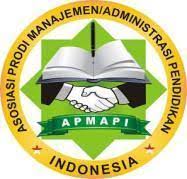Leadership In Developing A Culture Of Quality (Case Study In Madrasah Aliyah Negeri Lamongan)
Abstract
Quality human resources are becoming crucial in an era of globalization. Quality human resources are produced by quality educational institutions and led by the head of the madrasah, which consistently improves the quality of madrasas. Therefore, to improve the quality of the madrasah, it is necessary to build a culture of quality. Leadership plays an important role in shaping a solid madrasa culture of quality. Based on the above considerations, the study aims to (1) describe the leadership style of the Madrasa in developing a quality madrasa culture, (2) describe the leadership steps of the head of the madrasas in the development of a quality madrasah culture, (3) describe a cultural reality of the quality of Madrasa, (4) explain the efforts of the leader of the Madrasa in removing resistance to the quality culture development. This type of research is field research with a qualitative approach using case studies and data collection techniques through in-depth interviews, observations of participants, and documentation. Analysis of research results shows that (1) the main madrasa style in developing a quality culture has five leadership styles: charismatic, democratic, participatory, deliberative, and aggressive. It's adapted to the situation and conditions. (2) Leadership steps in developing a culture of quality madrasa: (a) the head of the Madrasa articulates the vision and mission of impact on improving the quality culture of Madrasa. (b) The head of the Madrasa has the values of leadership that are believed to be translated into the life of the organization of the madrasas. (c) the symbol is a description of the organizational values that rained and preserved and reflect the uniqueness of the Madrasas; (d) the process of development of a quality culture passes through four stages, namely the preparation phase, the acceptance phases, the implementation phases and the commitment phases. (3) The cultural reality of the quality of MAN Lamongan is related to the values of the institution and the leadership of the head of the Madrasa in promoting relations with the staff. (4) The individual teacher's resistance exists in developing a culture of madrasa-quality. The head of the Madrasa's efforts in dealing with the resistance of the people of Madrasa used a preventive and healing approach.
Keywords
Full Text:
PDFReferences
Abdul Gaffar Karim. 1995. Metamorfosis: NU dan Politisasi Islam Indonesia. Yogyakarta, LKIS. Agustian, A. G. 2007. Rahasia Sukses Membangun Kecerdasan Emosi dan Spiritual ESQ: Emotional Spiritual Quotient berdasarkan 6 Rukun Iman dan 5 Rukun Islam. Jakarta: Arga Publishing. Beach, Lee Roy. 1993. Making The Right Decision Organiztional Culture, Vision and Planning. United States of America : Prentice-Hall Inc. Caldwell, BJ & Spink, JM.1992. Leading the Self Managing School, London: The Falmer Press. Ekosusilo, Madyo. 2003. Supervisi Pengajaran dalam Latar Budaya Jawa. Sukaharjo: Univet Bantara Press. Hersey, Paul and Blanchard, Kenneth H. and Johnson, Dewey E. 1996. Management Of Organizational Behavior, 7th Edition.New Jersey: Prentice Hall,Inc. Husaini, Usman. 2010. Manajemen Teori, Praktik, dan Riset Pendidikan. Edisi 3. Jakarta: PT Bumi Aksara. Kasali, Rhenald. 2006. Pop Marketing dlam Konteks Pemasaran Indonesia, Gramedia Pustaka Utama, Jakarta. Miles, MB. & Huberman AM. 1984. Qualitative Data Analysis, California, Sage Publication. Morey, P. 2007. Report On Passion Fruit Demand Study Indonesia. Australia. Morelink Asia Pacific. http://www.pdf.usaid.gov/pdf. Muhaimin. 2009. Development Islamic Religious Education Curriculum, Jakarta: Raja Grafindo Persad, Mulyadi. 2010. Leadership Head school , Malang, UIN-Maliki Press. Mulyadi, 2010. Sistem akuntansi, Edisi ke-3, Cetakan ke-5, Penerbit Salemba Empat, Jakarta. Mulyasa, E. 2007. Become Head of a Professional Madrasah , Bandung: Youth Rosdakarya. Mulyasa, E. 2007. Becoming a Professional Teacher: Creating Learning Creative and Fun, Bandung: PT. Teenager Rosdakarya. Robbins, Stephen P. 1989. Organizational Behavior: Concept, Controversies Application. Englewood Cliffs: New Jersey Prentice Hall Inc. Salam, Burhanuddin. 1997. Logika Materiil Filsafat Ilmu Pengetahuan. Jakarta: Rineka Cipta Saroni, Muhammad. 2006. Madrasah Management , Yogyakarta: Ar:Ruzz Media. Soetopo, Hendiyat. 2005. Pendidikan dan Pembelajaran (teori, permasalahan, dan praktek), Malang: UMM Press. Sunindhia, Y.W. dan Ninik Widiyanti. 1988. Pembaharuan Hukum Agraria (Beberapa Pemikiran), PT. Dina Aksara: Jakarta. Umaedi. 1999. Management Enhancement Quality Madrasa Based, Jakarta: Directorate General of Elementary and Secondary Education General. Usman, Husaini. 2010. Management Theory, Practice and Educational Research, Jakarta: Earth characters. Veithzal, Rivai. 2005. Performance Appraisal; Sistem yang Tepat untuk Menilai Kinerja Karyawan dan Meningkatkan Daya Saing Perusahan. PT. Raja Grafindo Persada. Jakarta.
DOI: https://doi.org/10.18860/rosikhun.v3i1.18243
Refbacks
- There are currently no refbacks.
Copyright (c) 2023 shobihatul fitroh noviyanti

This work is licensed under a Creative Commons Attribution-ShareAlike 4.0 International License.
Jl. Raya Ir. Soekarno No.34 Dadaprejo, Pendem, Junrejo, Kota Batu, Jawa Timur













